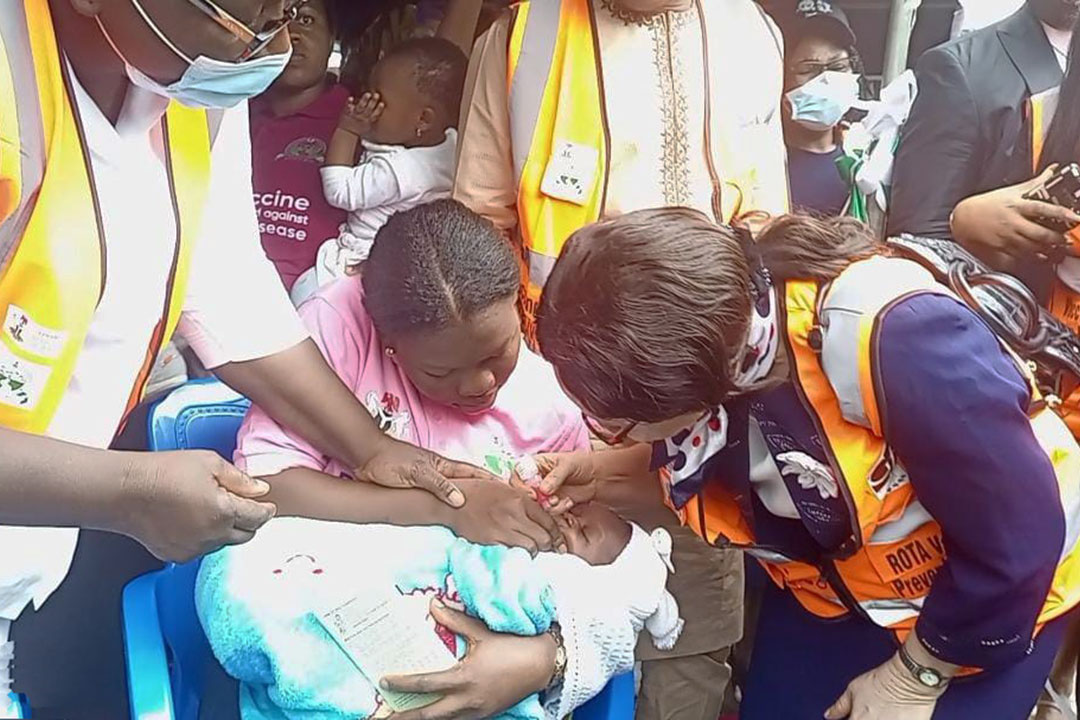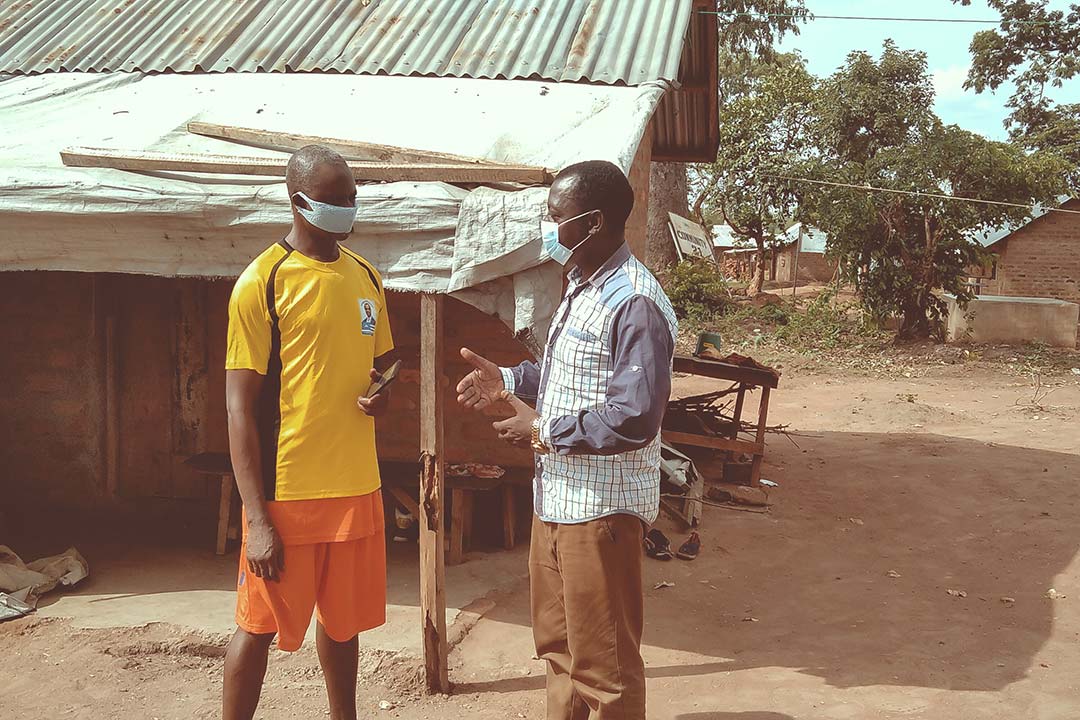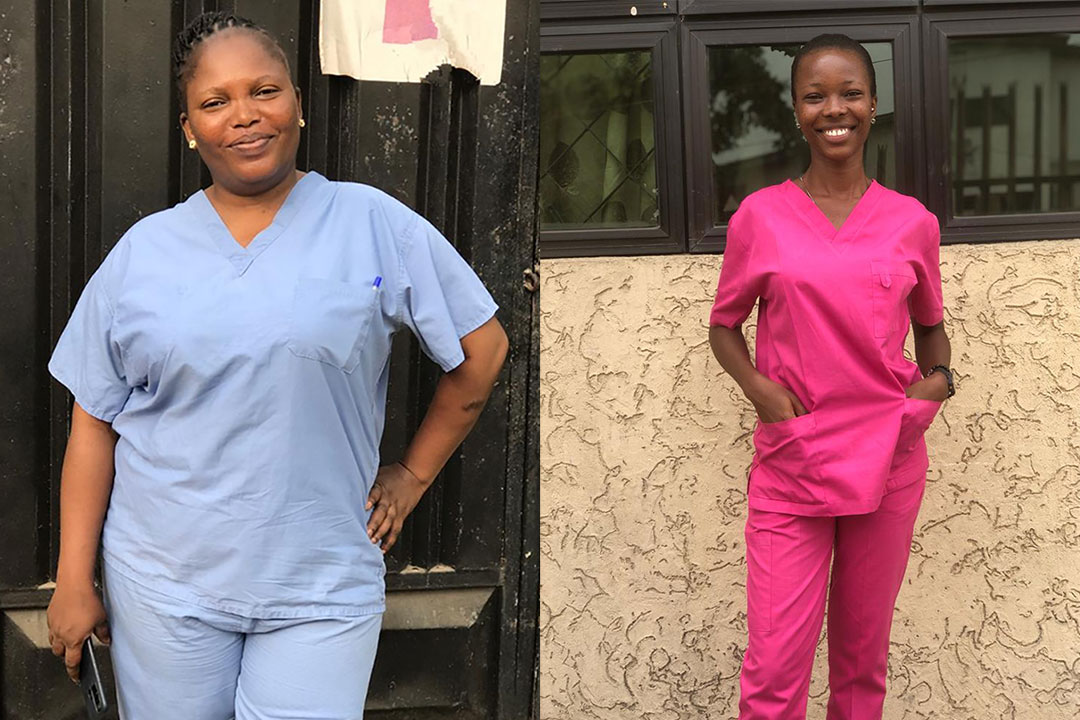“The stigma is real but it won’t stop us”: HIV-positive mothers put their children’s health first in Nigeria
In Mushin, Lagos State, mothers living with HIV are not letting their status and stigma deny their children full immunisation coverage.
- 13 December 2022
- 5 min read
- by Ijeoma Ukazu
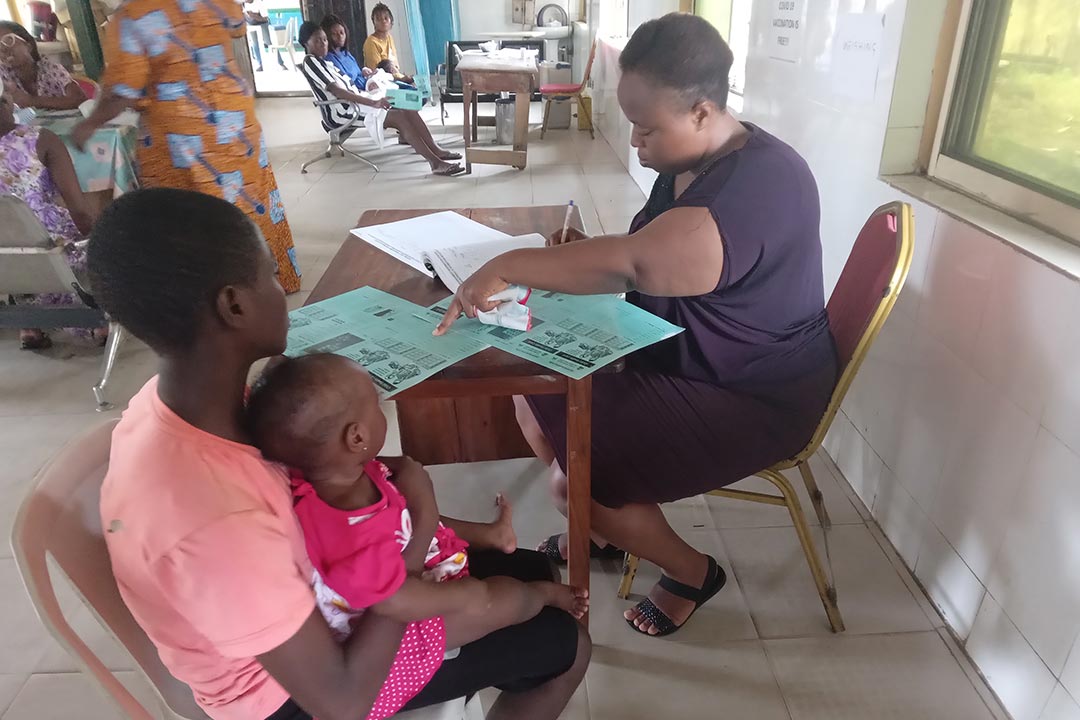
HIV infection remains a major public health challenge in Nigeria with age-long stigma a cause for concern. This has resulted in low immunisation status for infants whose mothers are living with the virus. But mothers in Mushin are not going to let this be the reason they don't get full immunisation coverage for their children.
“I know I cannot change my HIV status. I can only bring my viral load low. The best I can give my son is perfect health through immunisation and ensuring he doesn’t contract the virus from me. This task I am dedicated and committed to.”
"Being HIV-positive comes with a lot of stigma and challenges, but I look past that and put efforts [in] daily to ensure my child gets all the immunisation cover she deserves," says Adetunji Bimpe (18), mother of one.
"During one of my baby's immunisation appointment days, I had taken my antiretroviral drugs and couldn't find the strength to go out, but the thought of protecting my daughter's life gave me the strength I needed to visit the health centre for the vaccine.
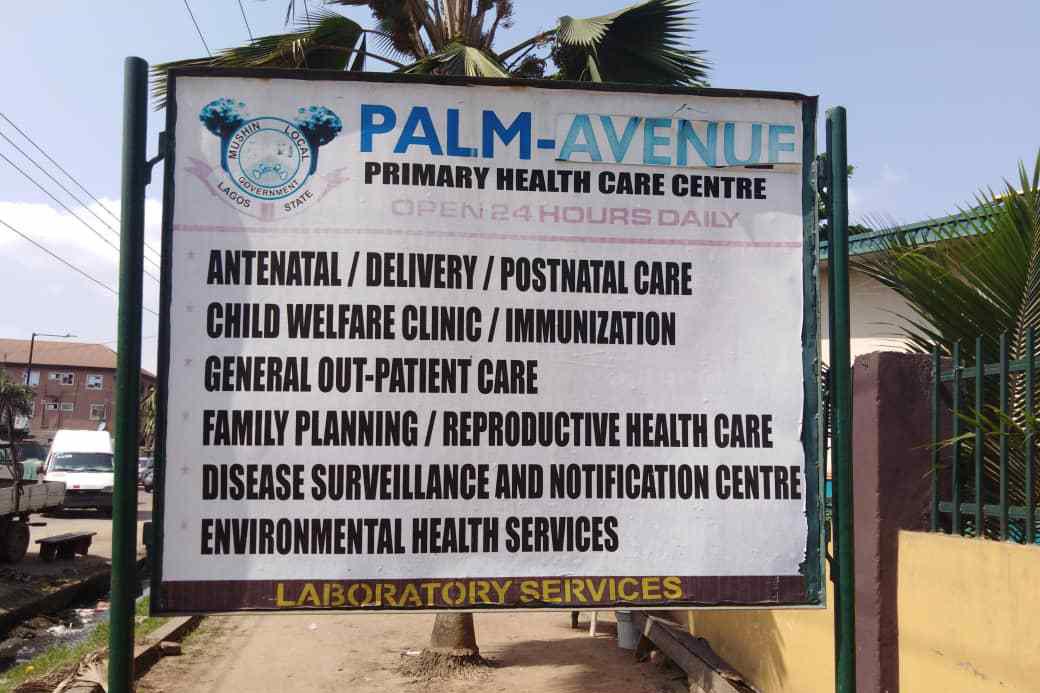
Credit: Ijeoma Ukazu
"Childhood immunisation is very important," she continues. "I am fully aware of its benefit to my child, especially as my HIV status has put her at risk. She is nine months old and so far, I have not missed any appointment. I owe my child full immunisation coverage. I don't want to take any chances."
Another mother, Titilope Tijani, says, "It is difficult to live with HIV in Nigeria and have children you owe a duty to protect at all times. The surest way to guarantee my children's health is through immunisation and I make sure nothing hinders me.
"During one of my baby’s immunisation appointment days, I had taken my antiretroviral drugs and couldn’t find the strength to go out, but the thought of protecting my daughter’s life gave me the strength I needed to visit the health centre for the vaccine."
"There were times I don't feel like stepping out of my house to face the world. Times when I felt like giving up the fight but I stayed strong for my children. I understand the risks they are exposed to and that has kept me in check to ensure routine immunisation for them. Thankfully, they are HIV-negative. Still, I am not resting on my oars and will continue to ensure their health and safety."
Not letting her guard down
"I have my son's immunisation appointment date written on almost all corners of my room. That serves as a reminder so I don't miss the date," says Esther Agunbiade.
The 35-year-old HIV-positive mother adds, "When I gave birth to my son, I was told by the nurse that immunisation is safe and would boost his immune system. These words always echo in my head. I do not joke about his vaccination. His health and well-being are my ultimate goal."
Have you read?
She recalls, "I remember a certain day it rained in Lagos with flash floods on the streets on my son's immunisation appointment day. I covered my child and headed to the hospital for his vaccine. The rain didn't deter me.
"I know I cannot change my HIV status. I can only bring my viral load low. The best I can give my son is perfect health through immunisation and ensuring he doesn't contract the virus from me. This task I am dedicated and committed to," she adds with conviction.
Ensuring an inclusive immunisation appointment
Contributing her quota to reducing maternal HIV stigma in Palm Avenue Primary Healthcare Centre, Mushin, Lagos State, is Chika Nnoruka, also known as mentor mother – a nomenclature used to address women who give counsel to mothers living with HIV.
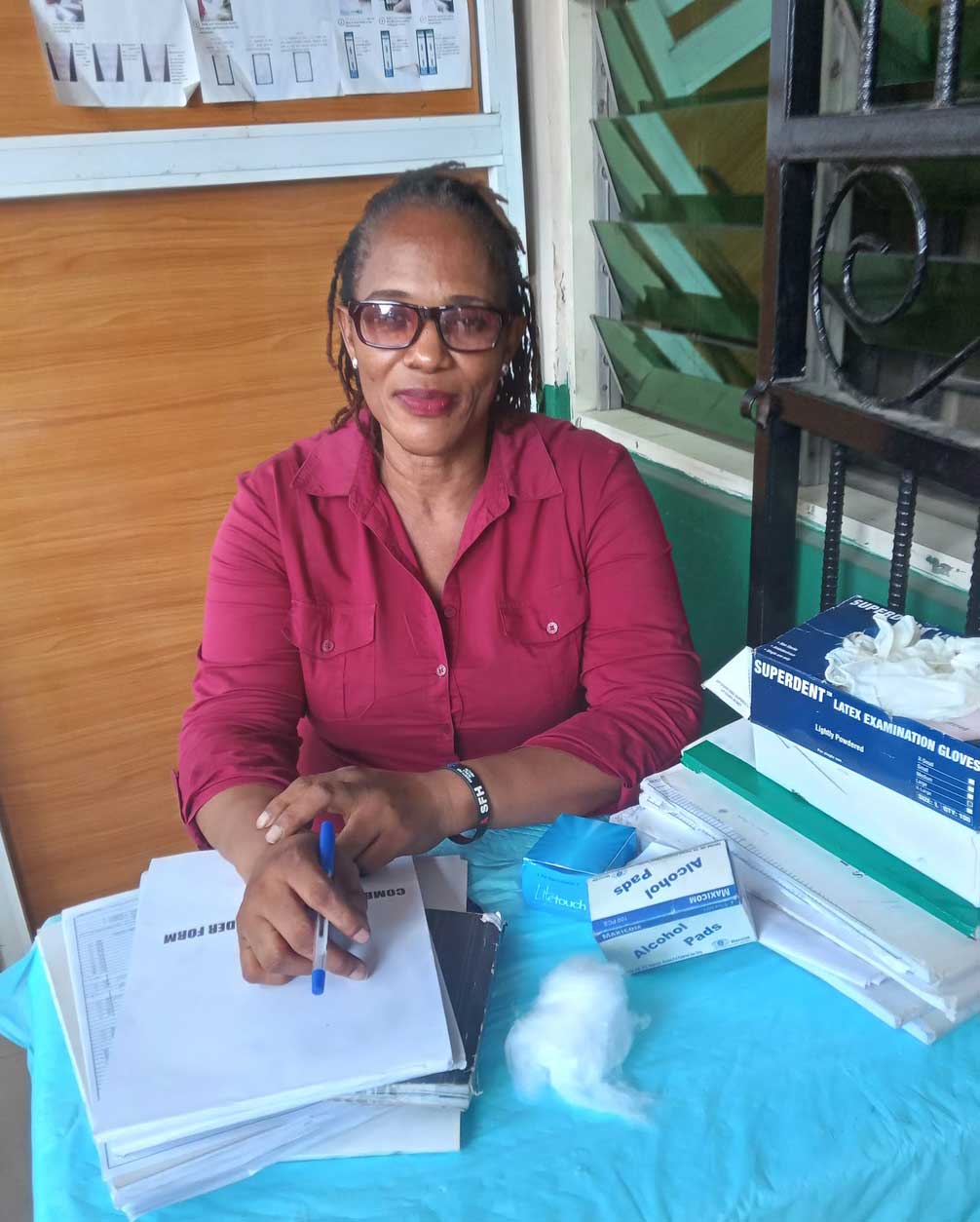
Credit: Ijeoma Ukazu
Nnoruka makes sure of inclusive immunisation appointments and visits for both mothers who are HIV-positive and negative to fight stigma.
She says, "I have about 15 HIV- positive mothers in my care. I see these young mothers as part of me. I create an environment for them to feel welcome. I made our immunisation visits all-inclusive to reduce stigma and to encourage HIV-positive mothers not to shy away from getting their children immunised.
“The stigma on maternal HIV is huge in Nigeria. When we talk of maternal health, it includes newborn and child health. In essence, what affects the mother affects the child.”
"These mothers are not in any organised group. They are individuals who are registered in the health centre. I counsel them and create avenues for freedom of expression."
According to a 2018 study by the South African Medical Research Council, children of HIV-positive women in sub-Saharan Africa were less likely to receive second and third doses of DTP – diphtheria, tetanus, and pertussis-containing vaccines in comparison with the children of HIV-negative women.
Dr Ifeanyi McWilliams Nsofor, a medical doctor, maternal health expert and a Senior New Voices Fellow at the Aspen Institute, Washington DC, adds his view: "The stigma on maternal HIV is huge in Nigeria. When we talk of maternal health, it includes newborn and child health. In essence, what affects the mother affects the child."
"Imagine a mother who is HIV-positive and pregnant. She uses a particular health facility that is aware of her status and she gives birth in that facility. Such a mother faces stigma with vaccination that involves the use of needles, especially if the child is also positive. That is why we need to ramp up health education around HIV for family members and health workers."
